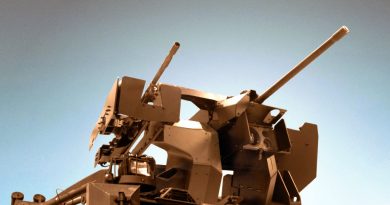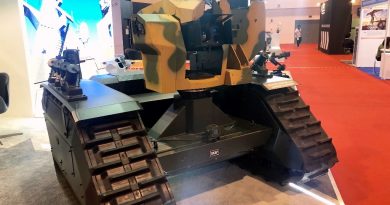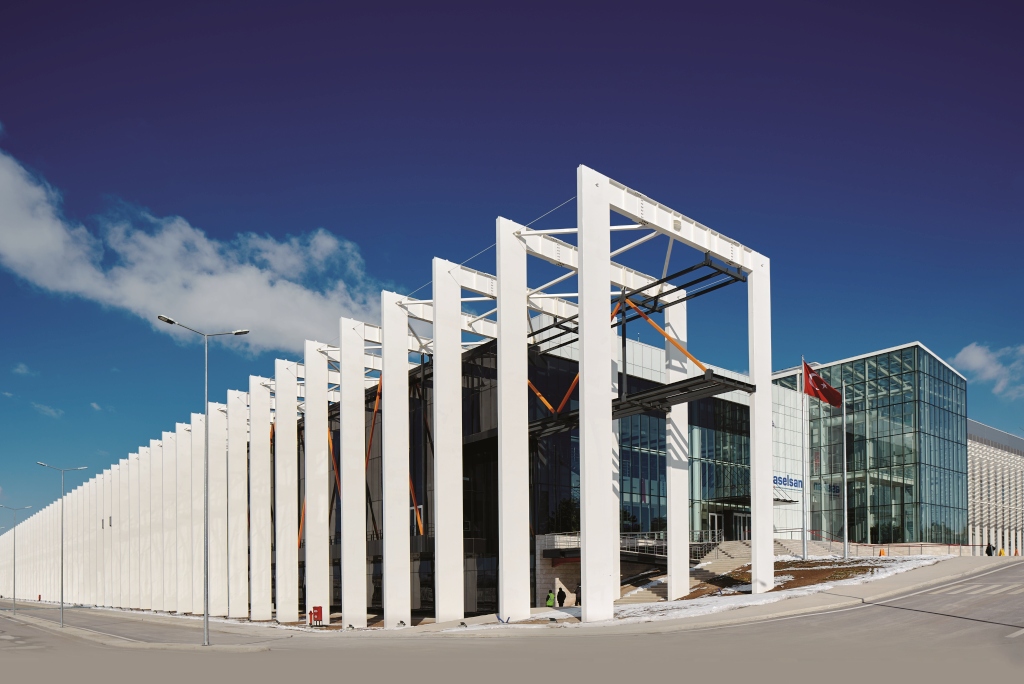
Aselsan celebrates its 50th anniversary planning and investing for the next 50 years
Overcoming the half-century mark is reaching an important milestone for a company. This year marks the 50th anniversary of the leading defence electronics company in Turkey, Aselsan. Visiting one of the company facilities allowed to better understand its reality, and to see how it is planning and investing to further increase its footprint in the next 50 years
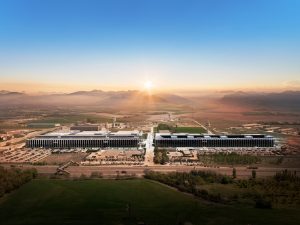
When in 1975 four Turkish engineers founded Aselsan in an apartment in Ankara, with the aim of producing military radios under license from Philips, following a US embargo [1] on communication equipment, even in their more optimistic thoughts they could not think that 50 years later the business they launched would have become a reference in the defence industry world. With over 13,000 employees, the company is planning and investing, aiming at exploiting the current defence investment trend to further increase the company business worldwide.
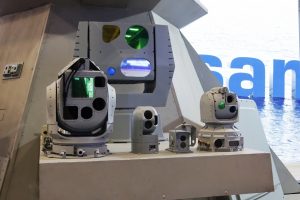
“Four years ago, I was often asked ‘what is your business line’ but now the brand is well known,” Ahmet Akyol, the Aselsan President and CEO tells EDR On-Line, the company having reached a total of 93 international clients and aiming at quickly overcome the 100 customer goal. He also underlines that even during the early 2000, when military operations were mostly focused on antiterrorism and operations other than war, the company continued to develop systems devoted to conventional warfare, and therefore when the tide turned it was ready to satisfy customers’ needs in a deeply different geostrategic situation.
Of course, the resulting race to rearm had a positive impact on company results, as shown by the over US$ 3.4 billion revenue in 20024, marking a 13% increase over the previous year. “And I think that at the end of this year, we will see again a huge improvement in our revenue, as well as in our domestic and international sales. Day by day, the momentum is going up,” the CEO added, underlining how most governments invest in defence for deterrence purposes, to avoid any potentially aggressive neighbour to start a crisis, the role of Aselsan being to supply technologies aimed at that. Half-year results showed an 11.3% revenue increase over the same period in 2024, which might bring the 2025 revenue pretty close to US$ 4 billion.
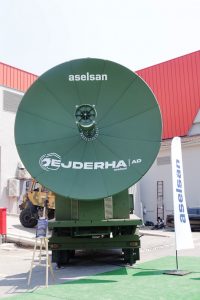
Diversifying the company portfolio is a guarantee for investors, he added, while investing on young people is a guarantee for the future; the average age at Aselsan is 33, while the average experience in the company is 10 years. Sixty-five percent of personnel have engineering background, and over 7,500 works in Aselsan’s 11 research and development centres. This shows how the company approaches the production issue, keeping in house the high-tech and the key processes, while outsourcing more standard manufacturing process, which explains the 5,600 suppliers. Another key issue is freedom of export; therefore the Ankara-based group has a strong national supply chain also for some key components to avoid any regulation which is not the standard one imposed by national authorities.
Discussing some of the innovative products launched or under development, Mr. Akyol mentioned the Antidot stand-off jammer for UAVs, a 30 kg solution without competitors according to the Aselsan CEO. Visiting the Radar and Electronic Warfare facility, one prototype was lacking among others, that of the 11 kg version of the Antidot, as a customer wanted to buy it straight away, without even waiting for production items.
Turkey considers unmanned systems the future in defence, and Aselsan started developing airborne early warning solutions for UAVs, as these can fly much closer to the crisis area, and is working on this with Baykar. “We must now convince the air forces that this is the future,” the CEO said.
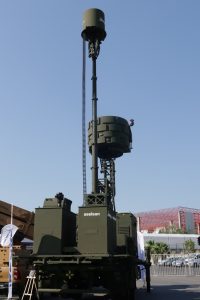
Anticipating the needs was also the case in what is now one of the main Aselsan success stories, the Steel Dome overarching air defence system. “We started this project two years ago, and shared the concept with the military, who confirmed our vision,” Mr. Akyol said. More on the Steel Dome in an incoming article.
Innovating is a mantra at Aselsan, research and development activities being granted by development contracts from the Turkish SSB, as well as by the 7% of the revenues that the company reinvests yearly in R&D, which considering 2024 results means well over US$ 200 million.
Today Aselsan is organised on six divisions, each managed by an Executive Vice-President: Integrated Defense System Technologies, Radar and Electronic Warfare, Communication and Information Technologies, Micro Electronics and Electro-Optics, Avionics and Guidance Systems Technologies, and Transportation, Security, Energy and Healthcare. The latter is the newest one and is growing, EDR On-Line understanding that the other five contribute almost evenly to the overall revenues.
The six divisions have all capabilities and assets, research and development, quality department, production department, product management, and so on, and can be considered as stand-alone companies. Finance, business development, human resources and technology management are centralised and can be found at group level. Managing technology to avoid duplications allows resource-saving; it is the task of the group Chief Technology Officer to manage the division’s roadmaps and where overlapping appears to assign the lead to one of the divisions, which will then coordinate all R&D activities on the specific subject. Social groups have been created among the divisions to improve communication, not only for R&D but for quality as well, EDR On-Line understood.
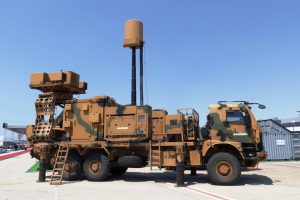
EDR On-Line was invited to visit the Gölbaşi campus, some 10 km south of Ankara. This currently hosts the Radar and Electronic Warfare Division as well as the Integrated Defence System Technologies Division. On August 28th the “Foundations for the Next 50 Years” ceremony took place on this site, at the presence of Turkish President Recep Tayyip Erdoğan, who inaugurated new facilities that starting from 2026 will increase the site capacity by 40%.
However, that same day the most important event was the groundbreaking ceremony of the Oğulbey Technology Base, set to become the company’s largest site and a cornerstone of its next 50 years. Located close to the Gölbaşi premises, the new campus will increase the capacity by a further 100%, Aselsan management insisting on the “campus” definition, as the premises host kindergarten, sports facilities, recreational areas, to improve the quality of life of the workforce.
The Oğulbey campus will cover a total area of 6.5 million m2, with over 735,000 m2 covered areas, for an investment of approximately US$ 1.5 billion. This will lead to a redistribution of the division’s activities, that together with new approaches to production, and to an increased presence of Artificial Intelligence in all the company processes, should further increase productivity.
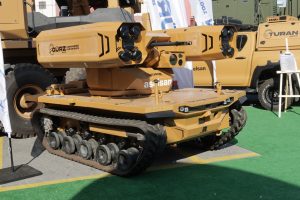
As previously mentioned, Aselsan relies on a high number of suppliers that provide specialised components or manufacturing capacity, over 80% of subsystems being now made in Turkey. SMEs must therefore grow together with Aselsan. The Turkish state ensures some economic support to companies involved in high-tech, while on its side Aselsan is trying to increase efficiency in working with subcontractors, dealing with multiple sources for critical components, ensuring them a stable workload to allow investments, and sustaining them also on manpower issue, as while Aselsan is going on three working shifts in some areas, its subcontractors must follow.
Another sector in which Aselsan considers investing is MRO (Maintenance, Repair, Overhaul). The increasing number of customers and of systems in service around the world requires new investments in this field, the company planning to open new MRO centres abroad, as supporting customers from Turkey due to distances, transport availability and other issues, is often difficult.
Summing up, looking at new technologies, improving processes, investing in infrastructures, machinery and, first of all, in human resources, generating a favourable working environment, cultivating future generations, and keeping a close eye on social duties, this is the message that emerges from the visit to the Gölbaşi campus.
Photos courtesy Aselsan and P. Valpolini
[1] Talking to the company management it emerged that in more than one occasion an embargo imposed by a foreign provider led the company to start working in a new field, that became successful in the following years.


